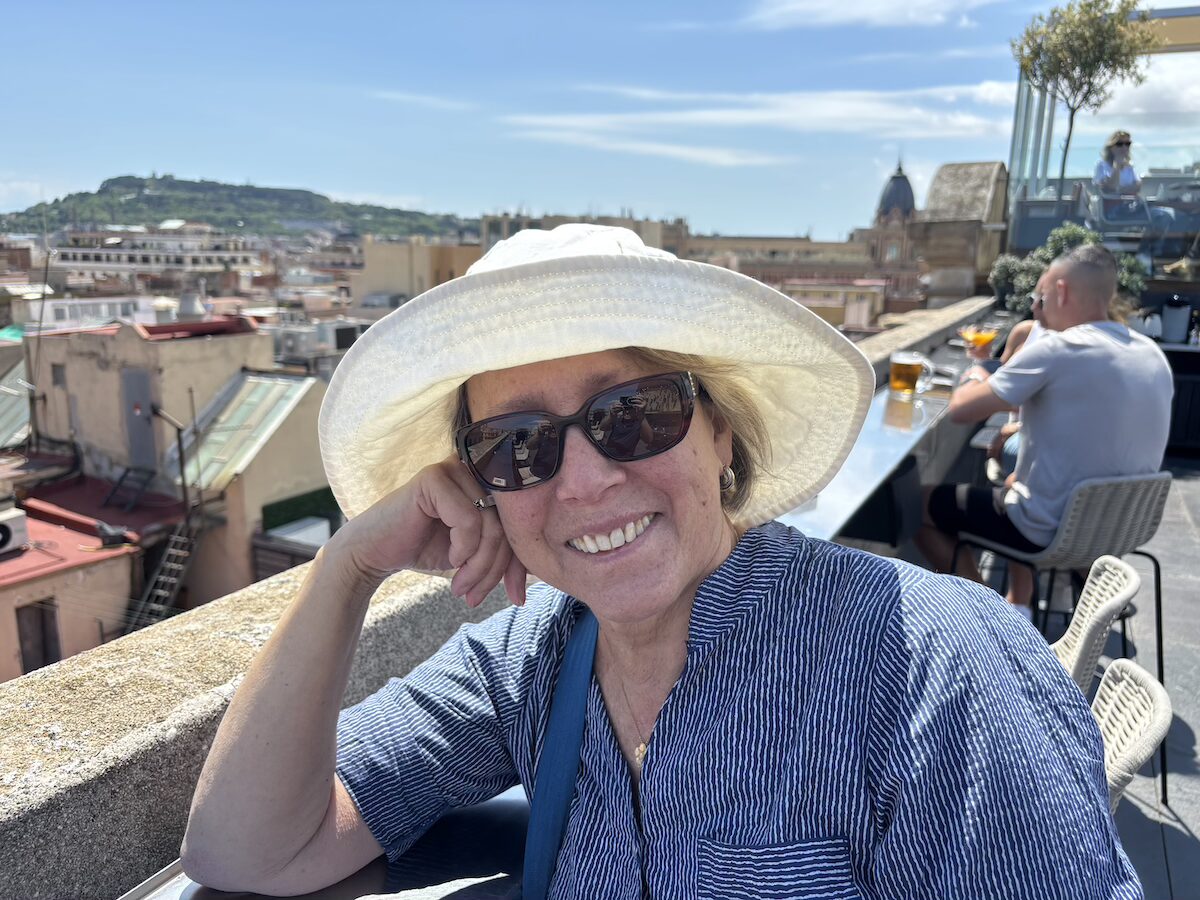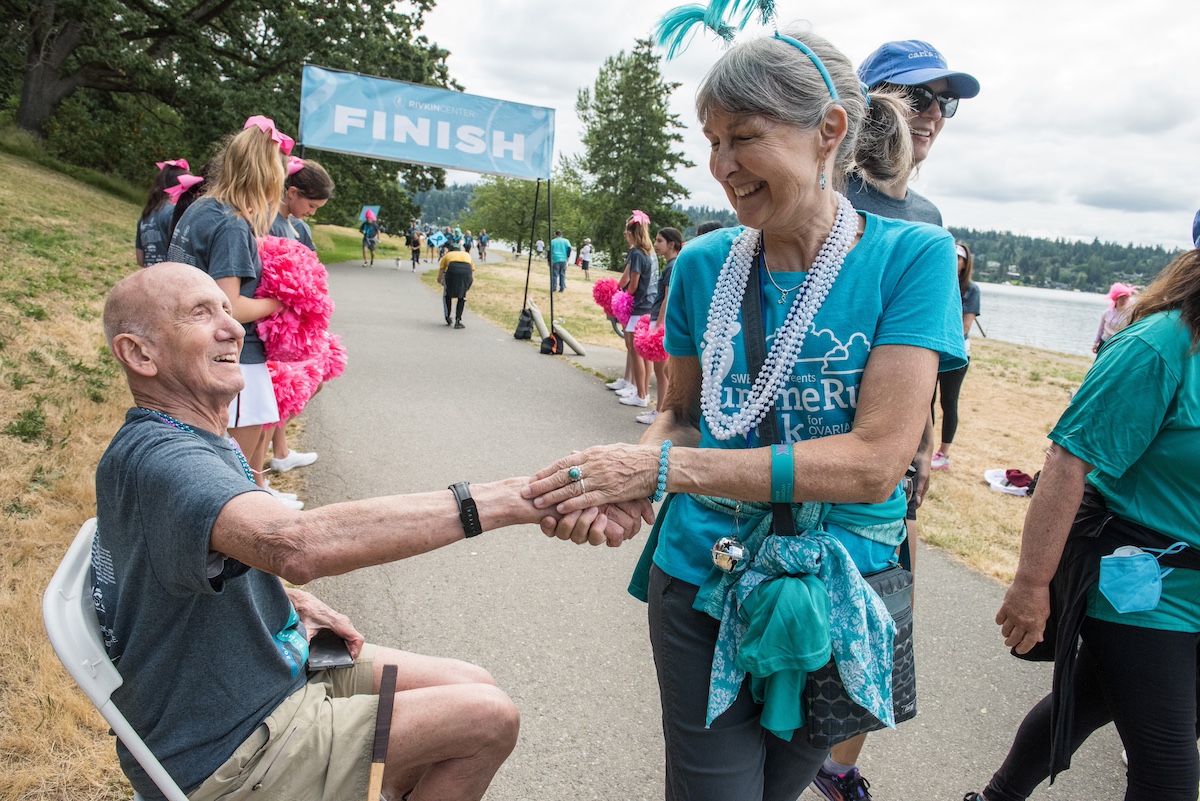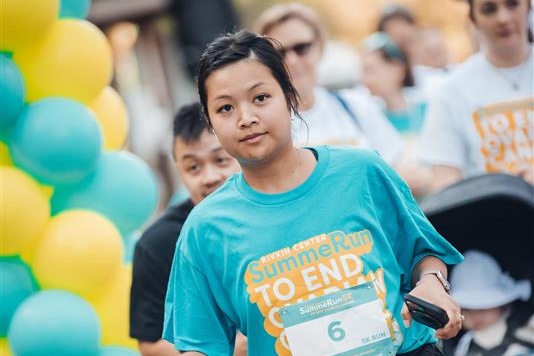Stand Up To Cancer Supports “Innovation in Collaboration” in Cancer Research with $1 Million for Five Teams through Phillip A. Sharp Awards
May 2, 2016 – Stand Up To Cancer (SU2C) has awarded a total of $1 million to five teams of cancer researchers to advance “innovation in collaboration” among SU2C-affiliated scientists. Each team, consisting of researchers from different SU2C-supported “Dream Teams” or research programs, will receive a grant of $200,000 to support new research projects stemming from previous advances in cancer research from the SU2C community. Four of the five teams are focused on immunotherapy and the fifth on DNA repair.
“From the beginning, Stand Up To Cancer has striven to break down silos, encourage collaboration, and bring together the best research that will benefit cancer patients,” said Phillip A. Sharp, PhD, Chair of SU2C’s Scientific Advisory Committee and a Nobel Prize winner for his research in genetics. “These awards will help bring us closer to the day we defeat cancer.”
The award program was established in 2014 by SU2C to honor Sharp’s keen interest in team research. The Phillip A. Sharp Innovation in Collaboration Awards are intended to reward distinctive collaborations that propose to accelerate current research and development models, bringing therapeutic benefits for cancer patients. Brief, initial proposals were reviewed by a committee of senior scientists led by SU2C Scientific Advisory Committee Co-Vice Chairs Arnold J. Levine, PhD, professor emeritus of systems biology at the Institute for Advanced Study in Princeton, and William G. Nelson, MD, PhD, director of the Johns Hopkins Sidney Kimmel Comprehensive Cancer Center in Baltimore, during the SU2C Scientific Summit in Santa Monica, California, in January.
“The research teams who submitted proposals for consideration are from quite diverse backgrounds and are innovating across a broad portfolio of projects,” said Nelson. “The 19 submissions we received spanned all important issues in improving cancer research for patients — DNA sequencing and the effects of the microbiome on immunotherapies; targeted genome sequencing; and organoid research, to name a few. Moreover, the teams are unusually diverse: physicists, computer scientists, computational mathematicians and engineers coming into the lab with oncologists, geneticists and biologists to explore and test hypotheses emerging from the terabytes of new data we’re now producing.”
In announcing the awards, Dr. Levine invoked the memory of Laura Ziskin, the movie producer and one of the co-founders of SU2C and who lived with breast cancer for seven years before her death.
“This year’s Sharp Awards for Innovation in Collaboration are distinguished in several respects,” he said. “One, is that the awards represent novel collaborations between senior and junior researchers, which create synergistic mentoring opportunities. Second, the winning proposals arise directly from questions being explored by existing Teams, arising through the 2016 SU2C Scientific Summit. These five projects will be funded in a short timeframe uncharacteristic of most funding mechanisms, and questions will be under investigation quickly.”
“Third, is the issue of geography: the winners come from research institutions across the US, yet their research will be collaborative. And finally, we see a trend among early-career scientists who started out as physicists and mathematicians but have moved into biology and are joining multi-disciplinary teams,” he said, “I think it’s fair to say that the full integration of computational design is where cancer research is going.”
Following the Summit, each selected team submitted a more detailed, yet still streamlined, two-page proposal and budget to SU2C’s Scientific Advisory Committee as part of the scientific review and oversight process managed by SU2C’s Scientific Partner, the American Association for Cancer Research.
Sharing the $1 million in Sharp Award funding in equal allocations of $200,000 to support research over a one- to two-year period are teams of senior scientists and early career researchers (denoted with *):
“Fingerprinting the systemic microbiome in plasma to predict immunotherapy outcomes in melanoma”
Muhammed Murtaza, MBBS, PhD*, SU2C-Melanoma Research Alliance Melanoma Dream Team
and
Antoni Ribas, MD, SU2C-Cancer Research Institute Cancer Immunology Dream Team
“Defining the role of epigenetics in chimeric antigen receptor T cell therapy for CLL”
Shelley Berger, PhD, SU2C-Van Andel Research Institute Epigenetics Dream Team reviewer
Carl June, MD, SU2C Joint Scientific Advisory Committee
and
Junwei Shi, PhD*
“Towards Predictive Models of Immunotherapy Response”
Benjamin Greenbaum, PhD*, Pancreatic Cancer Convergence Team
and
Jedd Wolchok, MD, PhD, SU2C-American Cancer Society Lung Cancer Dream Team
“A Trial of anti-PD1 in Children with Ultra-Mutated Cancers due to Avalanching Mutations Syndrome (congenital Biallelic Mismatch Repair Deficiency)”
Crystal Mackall, MD, SU2C-St. Baldrick’s Pediatric Cancer Dream Team
and
Patrick Forde, MD*, SU2C-Cancer Research Institute Cancer Immunology Dream Team
“Functional verification of DNA repair mutations in prostate and ovary tumors”
Eliezer Van Allen, MD* SU2C-Prostate Cancer Foundation Prostate Cancer Dream Team
and
Maria Jasin, PhD, SU2C-Ovarian Cancer Research Alliance-National Ovarian Cancer Coalition Dream Team
About Stand Up To Cancer
Stand Up To Cancer (SU2C) raises funds to accelerate the pace of research to get new therapies to patients quickly and save lives now. SU2C, a program of the Entertainment Industry Foundation (EIF), a 501(c)(3) charitable organization, was established in 2008 by film and media leaders who utilize the industry’s resources to engage the public in supporting a new, collaborative model of cancer research, and to increase awareness about cancer prevention as well as progress being made in the fight against the disease. As SU2C’s scientific partner, the American Association for Cancer Research (AACR) and the Scientific Advisory Committee led by Dr. Sharp conduct rigorous, competitive review processes to identify the best research proposals to recommend for funding, oversee grants administration, and provide expert review of research progress. For more information on Stand Up To Cancer, visit www.standup2cancer.org.
About the American Association for Cancer Research
Founded in 1907, the American Association for Cancer Research (AACR) is the world’s oldest and largest professional organization dedicated to advancing cancer research and its mission to prevent and cure cancer. AACR membership includes more than 35,000 laboratory, translational, and clinical researchers; population scientists; other health care professionals; and cancer advocates residing in 104 countries and territories. The AACR marshals the full spectrum of expertise of the cancer community to accelerate progress in the prevention, biology, diagnosis, and treatment of cancer by annually convening more than 20 conferences and educational workshops, the largest of which is the AACR Annual Meeting with over 18,000 attendees. In addition, the AACR publishes eight peer-reviewed scientific journals and a magazine for cancer survivors, patients, and their caregivers. The AACR funds meritorious research directly as well as in cooperation with numerous cancer organizations. As the Scientific Partner of Stand Up To Cancer, the AACR provides expert peer review, grants administration, and scientific oversight of team science and individual grants in cancer research that have the potential for near-term patient benefit. The AACR actively communicates with legislators and policymakers about the value of cancer research and related biomedical science in saving lives from cancer. For more information about the AACR, visit http://www.AACR.org.
Media Contacts:
American Association for Cancer Research
Rick Buck
215-446-7162
Rubenstein Communications
Courtney Greenwald
cgreenwald@rubenstein.com
212-843-8093
Entertainment Industry Foundation/Stand Up To Cancer
Jane Rubinstein
jrubinstein@eifoundation.org
646-386-7969


